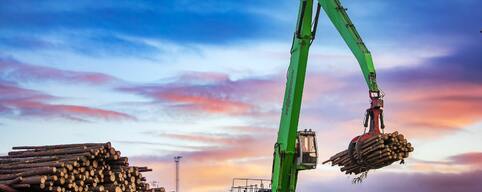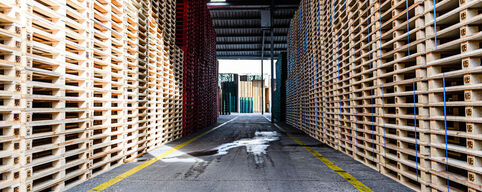

The recent study exposing the origins of timber entering the UK has stirred substantial concern over the country's sanctions system efficacy. With nearly half of the timber potentially originating from sanctioned nations, the UK's ability to enforce trade restrictions and maintain market integrity is being called into question.
Despite imposed sanctions on Russia and Belarus since the 2022 Ukraine conflict, timber from these regions continues to infiltrate UK markets. The government's intent was clear: cut financial ties and prevent further funding of Russia’s military endeavors. However, it appears the system designed to enforce these sanctions fails to stop the flow of illegal wood into the country.
The research specifically zeroed in on birch wood, a common material for furniture and construction. Using sophisticated mass spectrometry, the study aimed to verify wood origins by analyzing their chemical signatures. This method provides accurate identification of the geographical source of timber, thereby ensuring compliance with international sanctions.
Of the 52 birch wood samples tested, a staggering 24 were mislabeled, suggesting a deliberate or inadvertent disregard for sanction regulations. This high rate of incorrect labeling signals underlying vulnerabilities within the UK's current sanctions system. The integrity of timber identification processes is of paramount importance, otherwise, countries can effortlessly bypass sanctions via mislabeling.
As the study brought to light, the UK’s sanctions enforcement mechanisms rely heavily on documentation, which organized entities can manipulate with relative ease. This gap in the system allows for sanctioned goods to be disguised under false pretenses, risking ethical and legal breaches.
With these findings, there’s an urgent call for improvements in monitoring and verification systems. Implementing advanced technologies and cooperative international efforts can establish a more foolproof sanction compliance protocol. Enhanced transparency and accountability will not only uphold the economic sanctions' intent but also reinforce ethical business practices globally.
The implications of these findings are profound, touching on both economic and moral dimensions. The UK's inability to effectively halt the entry of sanctioned timber undermines global efforts against Russia and Belarus, countries undertaking activities deemed hostile by the international community. Furthermore, the legality and sustainability of UK wood imports are now cast under doubt, with potential repercussions for companies and consumers striving for ethical sourcing practices.
Addressing these challenges requires a comprehensive reevaluation of the current systems in place. Adopting more nuanced, multi-layered approaches will likely enhance the UK's ability to monitor, verify, and penalize sanction evasion. Without decisive action, the risk remains that the nation's markets may continue to unwittingly support the very actions they publicly condemn.



